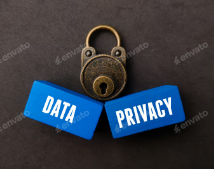Data privacy has become a hot topic of discussion among individuals, businesses, and governments. With personal information shared and stored online, understanding data privacy is essential for protecting ourselves and our interests.
What is Data Privacy?
Data privacy refers to the rights and expectations of individuals regarding the collection, storage, and usage of their personal information. This includes anything from basic identifiers like name and email address to more sensitive data such as financial records or health information. Companies and organizations collect vast amounts of data for various purposes, including marketing, service enhancement, and analytics. However, with this data comes the responsibility to protect it and respect individual privacy rights.
Why Does Data Privacy Matter?
- Protection from Identity Theft: Personal data breaches can lead to identity theft, where criminals use your information to impersonate you, causing financial and emotional distress.
- Maintaining Control: Data privacy allows you to maintain control over your personal information, deciding who can access it and how it can be used.
- Legal Compliance: Many countries have implemented strict data privacy laws, such as the General Data Protection Regulation (GDPR) in Europe. Understanding data privacy ensures that both individuals and organizations comply with these regulations.
- Trust Building: For businesses, respecting data privacy helps build trust with customers. Organizations that prioritize data protection are more likely to retain customers and attract new ones.
- Preventing Manipulation: Data privacy is essential in preventing manipulation through targeted advertising or misinformation that can arise from the misuse of personal data.
Common Data Privacy Risks
- Data Breaches: Cyberattacks can expose sensitive information, affecting individuals and organizations alike.
- Unclear Consent: Sometimes, users may unknowingly consent to share personal data through vague privacy policies or settings.
- Surveillance: Government surveillance and monitoring can infringe on personal privacy, raising ethical concerns.
How to Protect Your Data Privacy
- Limit Sharing on Social Media: Be cautious about the information you share on social media platforms. Review privacy settings to control who sees your posts and personal details.
- Use Strong, Unique Passwords: Create complex passwords for different accounts and consider using a password manager to help keep track of them.
- Enable Two-Factor Authentication (2FA): Adding an extra layer of security, 2FA requires a second verification step to access your accounts.
- Read Privacy Policies: Before using a new app or service, take the time to understand its privacy policy. Look for how data is collected, stored, and used.
- Avoid Public Wi-Fi for Sensitive Transactions: Public networks can be less secure. Use a VPN for more secure browsing, especially when handling sensitive information.
- Regularly Update Software: Keeping operating systems, applications, and antivirus software updated ensures you have the latest security enhancements.
- Be Wary of Phishing Scams: Be vigilant about emails or messages asking for personal information. Verify the sender before clicking links or providing any details.
- Request Data Deletion: Under laws like the GDPR, you have the right to request the deletion of your personal information from companies that hold it.
Data privacy is an essential aspect of life in the digital age, impacting both individuals and organizations. As technology evolves, so do the challenges and risks associated with personal data. By understanding the importance of data privacy and taking proactive steps to protect yourself, you can navigate the digital world more safely and confidently. Always remember: your information is valuable—treat it with care!
